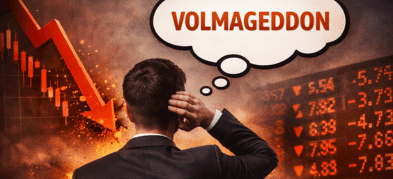Important Information
This website is managed by Ultima Markets’ international entities, and it’s important to emphasise that they are not subject to regulation by the FCA in the UK. Therefore, you must understand that you will not have the FCA’s protection when investing through this website – for example:
- You will not be guaranteed Negative Balance Protection
- You will not be protected by FCA’s leverage restrictions
- You will not have the right to settle disputes via the Financial Ombudsman Service (FOS)
- You will not be protected by Financial Services Compensation Scheme (FSCS)
- Any monies deposited will not be afforded the protection required under the FCA Client Assets Sourcebook. The level of protection for your funds will be determined by the regulations of the relevant local regulator.
Note: UK clients are kindly invited to visit https://www.ultima-markets.co.uk/. Ultima Markets UK expects to begin onboarding UK clients in accordance with FCA regulatory requirements in 2026.
If you would like to proceed and visit this website, you acknowledge and confirm the following:
- 1.The website is owned by Ultima Markets’ international entities and not by Ultima Markets UK Ltd, which is regulated by the FCA.
- 2.Ultima Markets Limited, or any of the Ultima Markets international entities, are neither based in the UK nor licensed by the FCA.
- 3.You are accessing the website at your own initiative and have not been solicited by Ultima Markets Limited in any way.
- 4.Investing through this website does not grant you the protections provided by the FCA.
- 5.Should you choose to invest through this website or with any of the international Ultima Markets entities, you will be subject to the rules and regulations of the relevant international regulatory authorities, not the FCA.
Ultima Markets wants to make it clear that we are duly licensed and authorised to offer the services and financial derivative products listed on our website. Individuals accessing this website and registering a trading account do so entirely of their own volition and without prior solicitation.
By confirming your decision to proceed with entering the website, you hereby affirm that this decision was solely initiated by you, and no solicitation has been made by any Ultima Markets entity.
I confirm my intention to proceed and enter this website Please direct me to the website operated by Ultima Markets , regulated by the FCA in the United Kingdom
Ultima Markets App
Trade Anytime, Anywhere
What Is Forex Trading?
Forex trading also known as foreign exchange trading. It is the process of buying one currency while simultaneously selling another in order to profit from changes in exchange rates. It takes place in the foreign exchange (FX) market, which is the largest and most liquid financial market in the world, with a daily turnover of $7.5 trillion.
Unlike stock markets, the forex market has no central exchange. Instead, it operates as a global decentralised network of banks, brokers, hedge funds, corporations, and individual traders.
How Forex Trading Works
Forex trading always involves currency pairs, such as EUR/USD or GBP/JPY. In each pair:
- The base currency is the first (EUR).
- The quote currency is the second (USD).
The exchange rate shows how much of the quote currency is needed to buy one unit of the base currency.
For example:
- If EUR/USD = 1.1000, it means 1 euro = 1.10 US dollars.
- If the rate rises to 1.1200, the euro has strengthened, and a trader who bought EUR/USD profits.
Trades are executed via brokers, using electronic trading platforms like MetaTrader 4/5 or proprietary apps.
Key Features of Forex
- High Liquidity: Trillions in daily transactions keep spreads tight.
- 24/5 Market Hours: Runs continuously Monday to Friday across time zones.
- Regulated Market: Overseen by bodies like the FCA (UK), ASIC (Australia), and CySEC (Europe).

What Is Crypto Trading?
Crypto trading is the process of buying and selling digital currencies such as Bitcoin (BTC), Ethereum (ETH), and other altcoins to profit from price movements. Unlike Forex or stocks, crypto trading takes place on decentralised, blockchain-based markets that operate 24/7 without central authority.
As of 2025, the global cryptocurrency market has a total market capitalisation of about $2 trillion, with daily trading volumes ranging between $120–150 billion.
How Crypto Trading Works
Crypto trading happens on cryptocurrency exchanges such as Binance, Coinbase, and Bybit. Traders exchange one digital asset for another, or swap crypto for fiat currencies (USD, EUR, GBP).
Common Trading Methods:
- Spot Trading: Buying and holding crypto in real time.
- Margin Trading: Using leverage to amplify exposure (e.g., 1:10, 1:50).
- Derivatives Trading: Futures and perpetual swaps allow speculation without holding the asset.
- Decentralised Trading (DEXs): Peer-to-peer transactions via platforms like Uniswap, without intermediaries.
Key Features of Crypto
- High Volatility: Daily swings of 5–10% are common.
- 24/7 Market Access: No opening or closing hours.
- Decentralisation: Trading occurs across exchanges without central bank control.
- Emerging Regulation: Frameworks like the EU’s MiCA (2024–2025 rollout) aim to bring greater investor protection.

Forex Trading vs Crypto Trading: Key Differences
While both Forex and Crypto involve trading currencies, they operate in very different environments. Understanding these differences is essential before deciding which market better suits your strategy.
| Factor | Forex Trading | Crypto Trading |
| Market Size | $7.5 trillion daily turnover | ~$120–150 billion daily trading volume |
| Market Hours | 24 hours a day, 5 days a week (Mon–Fri) | 24/7 nonstop, including weekends and holidays |
| Liquidity | Extremely high, especially in major pairs (EUR/USD, USD/JPY) | Lower, varies by coin and exchange |
| Leverage | Moderate (0.5–1% daily average moves) | High (5–10%+ daily swings, altcoins can exceed 20%) |
| Assets | Strong oversight (FCA, ASIC, CySEC, CFTC/NFA) | Limited but evolving (EU MiCA rollout 2024–2025, SEC/CFTC disputes in U.S.) |
| Technology | Capped at 1:30 in EU/UK for retail traders; higher offshore | Up to 1:50+ on exchanges; some unregulated platforms offer 1:100+ |
| Participants | Currency pairs (major, minor, exotic) | Cryptocurrencies, tokens, stablecoins, NFTs, DeFi assets |
| Traded via brokers on platforms like MT4/MT5 | Blockchain-based, traded on centralised and decentralised exchanges | |
| Banks, governments, institutions, retail traders | Retail traders, crypto funds, miners, whales, institutional adopters |

Forex vs Crypto Which Is More Profitable?
Crypto can be more profitable in the short term due to extreme volatility, while Forex is generally more sustainable and consistent over the long term. Forex traders benefit from regulation, high liquidity, and stable returns, while crypto traders face higher risks but also higher potential rewards.
Profitability in Forex
- Consistency over time: Forex markets are less volatile, making it easier to apply long-term strategies.
- Stable profits for disciplined traders: Professionals often use technical and fundamental analysis to generate consistent returns.
- Regulated leverage tools: Properly managed leverage can increase profits, but poor management magnifies losses.
Profitability in Crypto
- High-risk, high-reward: Crypto’s extreme volatility can generate large profits in a short time.
- Examples: Bitcoin rose from ~$16,000 in Jan 2023 to over $70,000 in March 2024 — a 4x return. Altcoins often move even faster.
- Speculative nature: While gains can be massive, losses can also be sudden and severe (e.g., 2022’s Terra/LUNA collapse).
Many experienced traders use both markets, Forex for stability and Crypto for growth opportunities.
Expert Insight
According to the IMF (2024), “crypto assets remain highly volatile and should not be considered substitutes for traditional currencies, but they offer diversification benefits in high-risk portfolios.”
Meanwhile, the BIS (2023) stresses that forex remains the backbone of global finance, with liquidity unmatched by any other asset class.
Conclusion
So, Forex vs Crypto, which is more profitable? The answer depends on your trading style, goals, and risk appetite. Forex trading offers stability, regulation, and long-term consistency, while crypto trading provides higher volatility and the potential for outsized short-term gains.
For many traders, the most profitable path lies in combining both markets, using Forex as a steady foundation while exploring opportunities in crypto for growth.
At Ultima Markets, we help traders access both worlds with secure, regulated trading conditions, advanced tools, and educational resources designed to sharpen your strategy. Whether you prefer the liquidity of Forex or the fast pace of Crypto, you can trade with confidence and with purpose.
Disclaimer: This content is provided for informational purposes only and does not constitute, and should not be construed as, financial, investment, or other professional advice. No statement or opinion contained here in should be considered a recommendation by Ultima Markets or the author regarding any specific investment product, strategy, or transaction. Readers are advised not to rely solely on this material when making investment decisions and should seek independent advice where appropriate.












